23 October 2019, 17:20
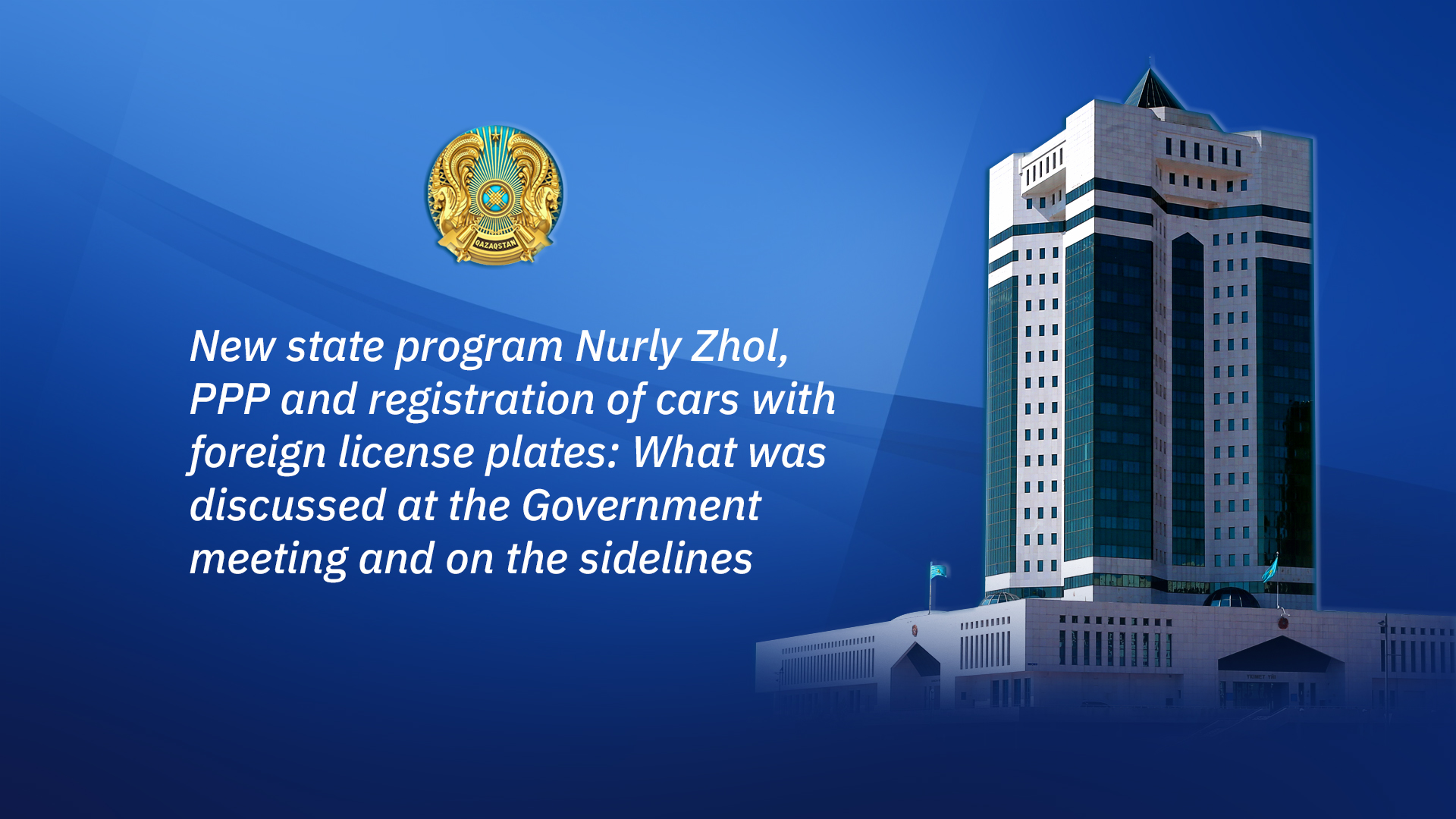
At the Government session that took place Oct. 22, 2019, the implementation of the Nurly Zhol State Infrastructure Development Program for 2015–2019 and the project for 2020–2025 were reviewed, the issues of public-private partnership were also discussed. Following the meeting, a press conference was held with representatives of the Ministry of Industry and Infrastructure Development. On the sidelines of the Government, media representatives received answers to questions on relevant topics.
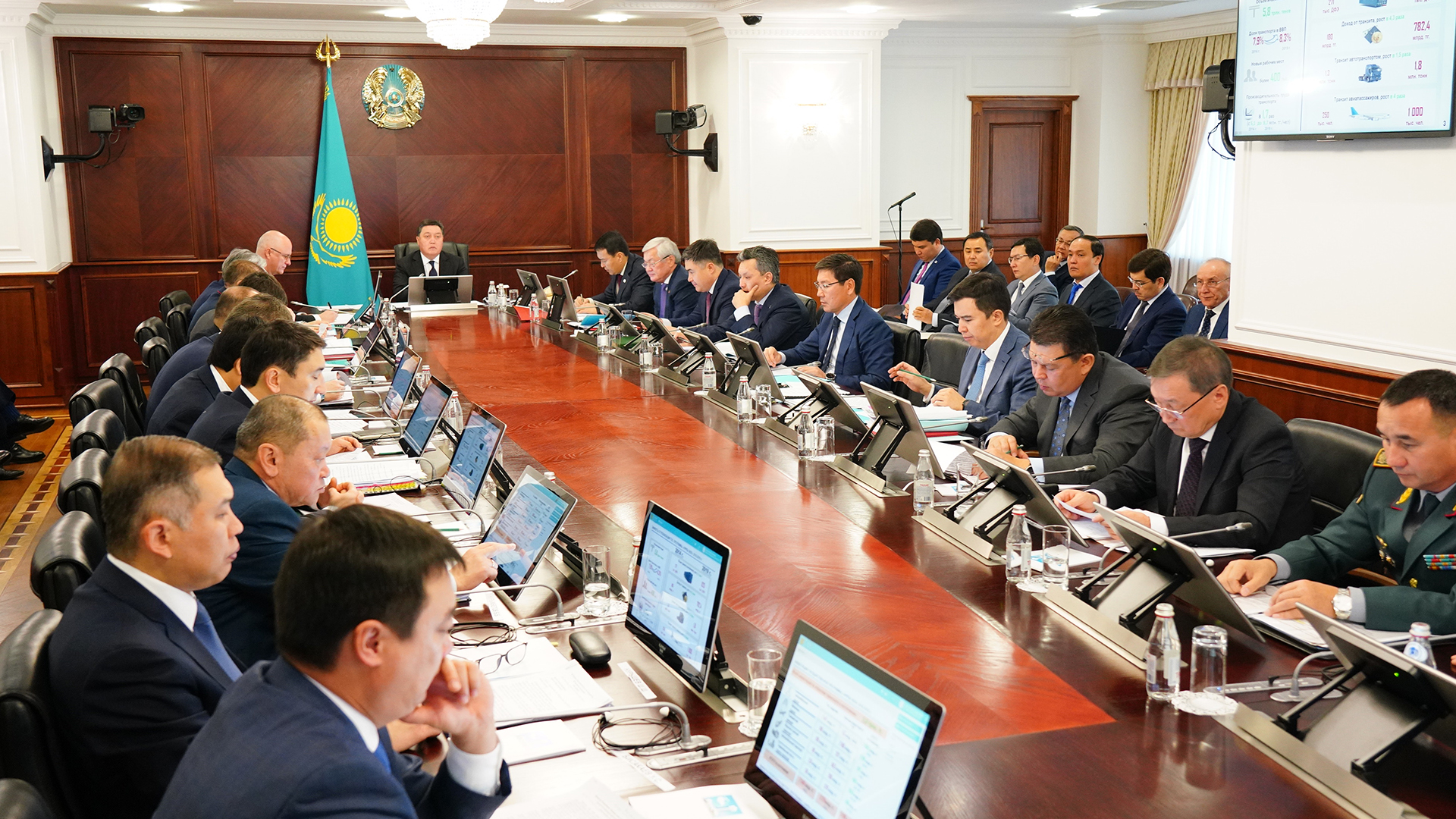
During the consideration of the first issue, the prime minister was informed that over the past 5 years, about 5 trillion 800 billion tenge has been invested in the development of the transport industry. Thanks to such large-scale investments:
As Head of Government Askar Mamin noted, a stable transport and logistics system has been formed. As a result, Kazakhstan has become a transcontinental bridge between Europe and Asia.
“The tasks of Elbasy to create a regional transport and logistics hub and develop the country's transit potential are in the active stage of implementation,” said the prime minister of Kazakhstan.
Given the success of the program, the Cabinet reviewed the draft of the new Nurly Zhol State Program for 2020-2025, the so-called "Nurly Zhol 2."
Forecast indicators of the implementation of the second five-year plan are as follows:
In order to bring to the national standard in the field of automobile transport, it is planned to build and modernize about 133 bus stations / stations and passenger service points.
In general, the implementation of the new Nurly Zhol State Program will create 551 thousand jobs.
“As Elbasy noted at a recent meeting of the Nur Otan faction, the new five-year plan of the Nurly Zhol program is one of the fundamental state programs aimed at further developing the country's transport infrastructure and transit potential,” said Mamin.
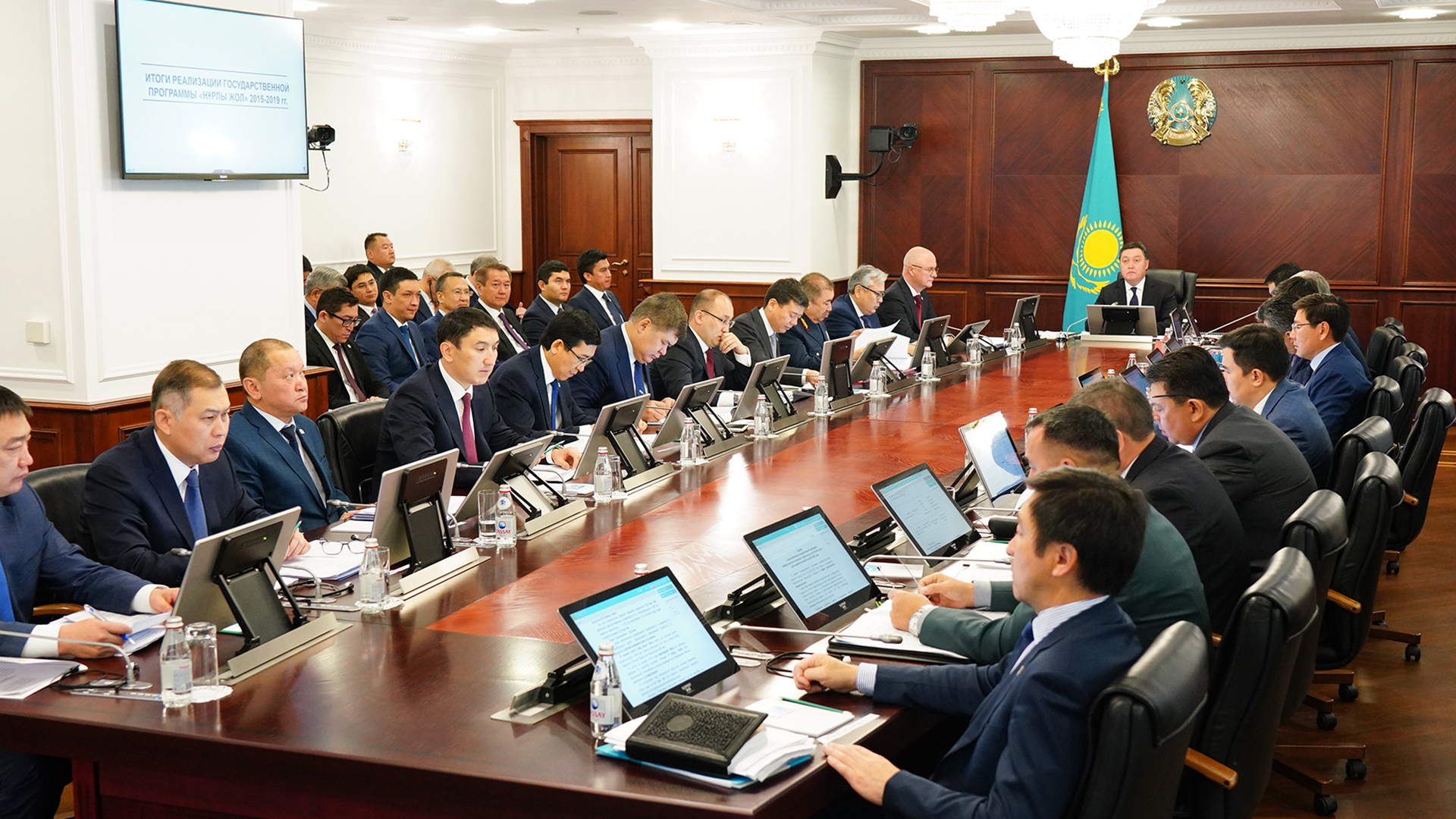
The second part of the Government session was devoted to the development of public-private partnerships. This is a mutually beneficial cooperation mechanism that allows for the implementation of large infrastructure projects, such as hospitals, schools, with the phased payment of necessary funds. On the other hand, this tool gives a serious impetus to the development of business in the country. Among the positive effects are the attraction of private investment and the creation of new jobs.
As part of the discussion of PPP projects, the head of government was informed that since the introduction of this mechanism 615 agreements have been concluded for a total of 1.6 trillion tenge. In the next 5 years, it is planned to attract 838.5 billion tenge of investments in the construction of 16 large hospitals alone. In the field of education, 558 PPP projects are implemented in the amount of 243 billion tenge.
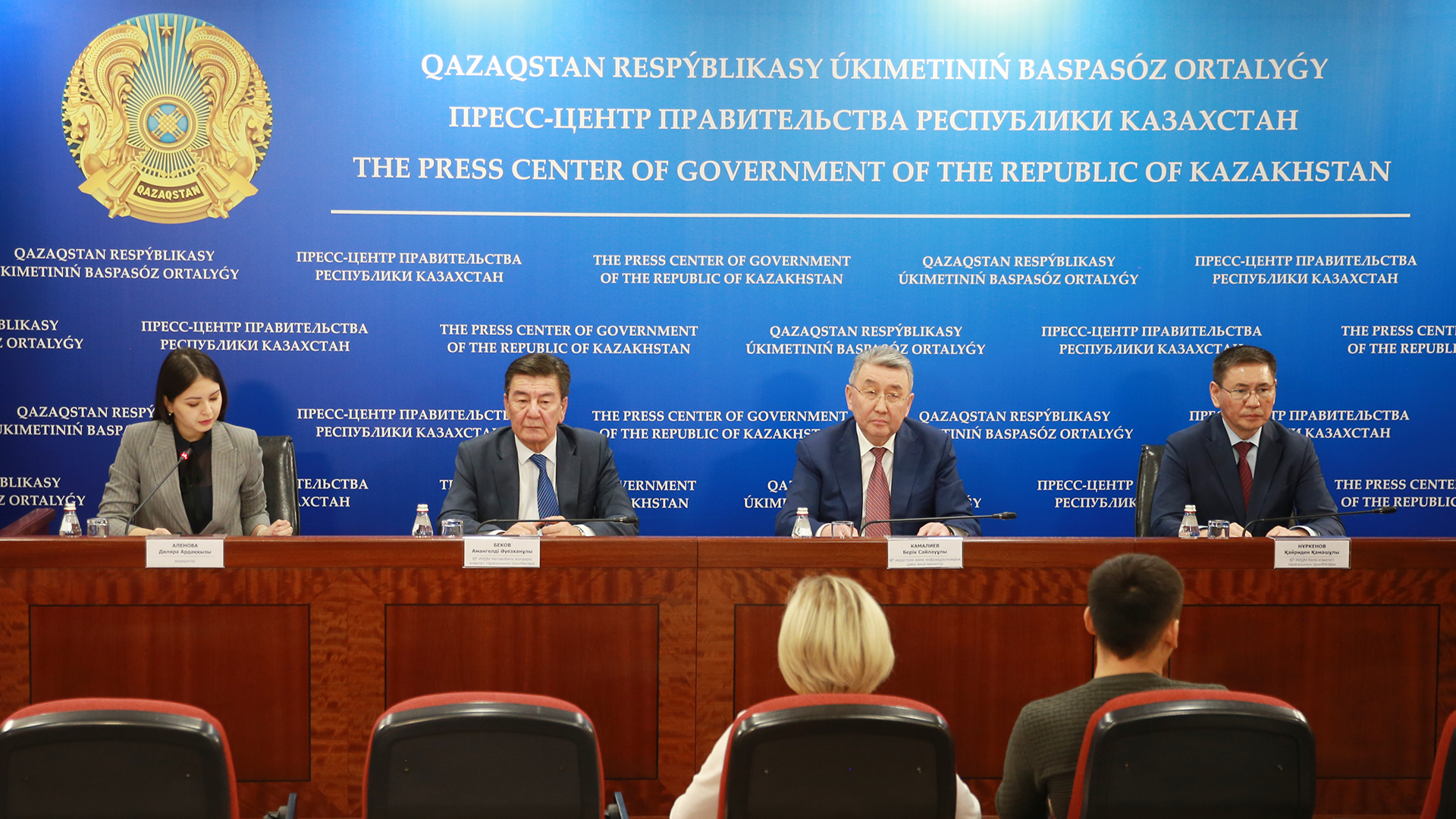
“The development of PPPs is one of the priority areas of the Government’s work,” the prime minister said, noted the positive dynamics and instructed to continue the implementation of large infrastructure projects, including transport and energy, in the housing sector, for which to work out the necessary changes to the legislation, taking into account international best practices in the development of PPPs.
Following the meeting, Vice Minister of Industry and Infrastructure Development Berik Kamaliнev, Deputy Chairman of the Committee for Roads of the Ministry of Industry and Infrastructure Development Amangeldy Bekov, and Deputy Chairman of the Ministry Transport Committee Kayriden Nurkenov answered the journalists’ questions regarding the results of the first Nurly Zhol program and the draft of the new one.
In his speech, Kamaliyev briefly dwelt on the results of the implementation of the Nurly Zhol state program for 2015-2019. According to him, during this time, tremendous work has been done in the transport, railway, aviation, transit spheres. Three thousand km of republican roads were built and reconstructed. These are the sections of Almaty - Khorgos and the bypass of the Kordai pass of the international corridor Western Europe - Western China, as well as the sections Nur-Sultan - Karaganda, Nur-Sultan - Pavlodar - Semey - Kalbatau, Almaty - Taldykorgan, Kokshetau - Petropavlovsk, Aktau - Shetpe, Uralsk - Kamenka, Beineu - Akzhigit and others. Particular attention is paid to the local road network. Over the past 5 years, 590 billion tenge has been allocated for the development of roads of regional and district significance and 15,000 km of roads have been repaired.

To a correspondent’s question about toll roads and their conformity in terms of service and payback, Kamaliyev said that at present the length of toll roads has been increased to 682 km. These are the roads Nur-Sultan – Schuchinsk (211 km), Nur-Sultan – Temirtau (134 km), Almaty – Kapshagai (42 km), Almaty – Khorgos (295 km), the annual fees of which are over 4 billion tenge, which allows saving budget funds for the maintenance of these roads and maintain the quality of the road surface.
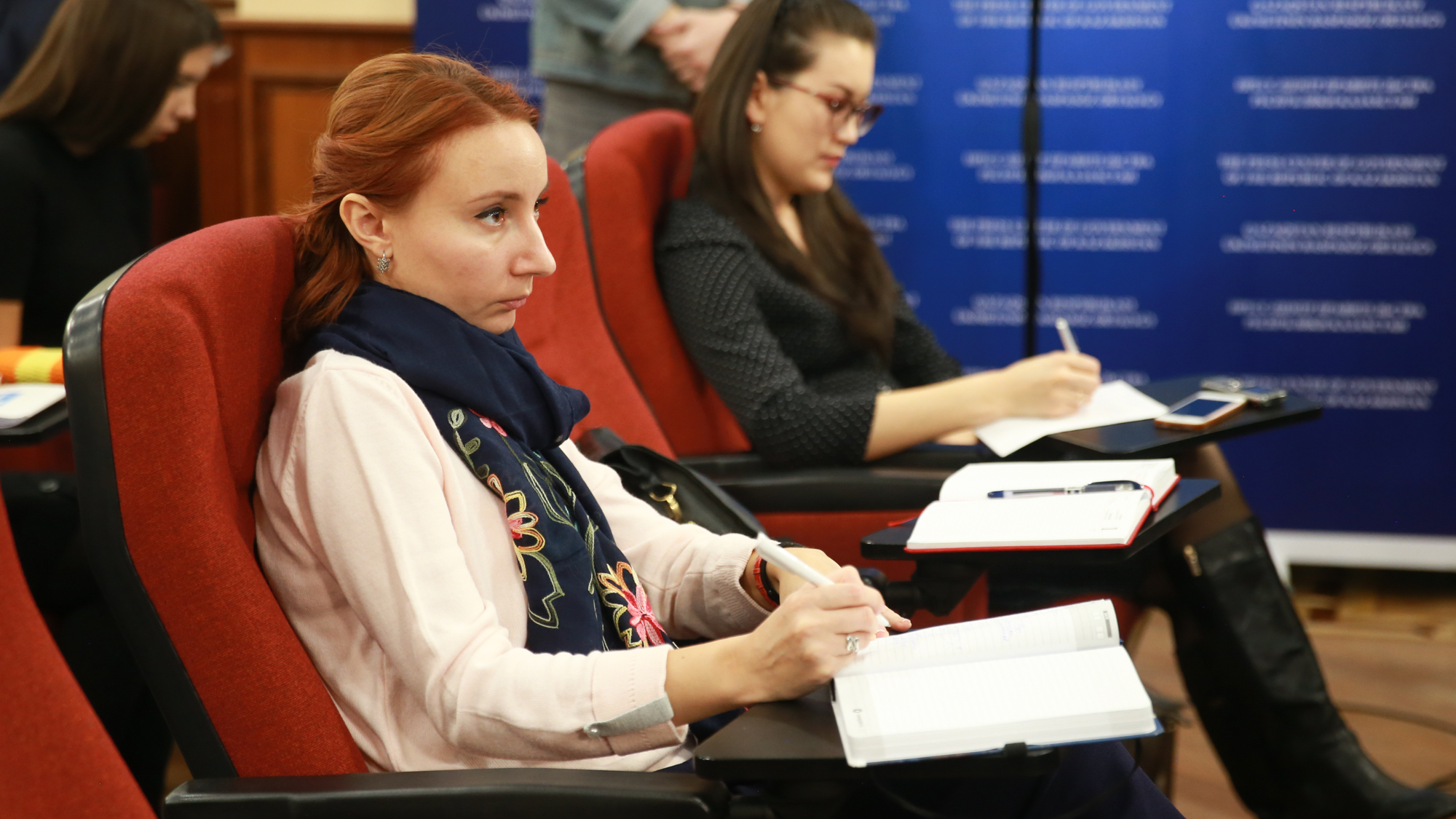
“For 200 km we pay 200 tenge, which means 1 km costs 1 tenge. To improve the service, it is necessary to keep the road in good condition year-round, taking into account our climatic conditions. As for the service facilities that are located along the tracks, we have adopted a program, we continue to work in this direction. We want to work with SMEs to develop a financial support mechanism. From our side, this is infrastructure, including the supply of engineering networks,” Kamaliyev said.
In order to provide road users with high-quality roadside services, 1 thousand of 1,822 existing facilities have been brought into line with the National Standard. Additionally, 73 objects were built at the expense of the budget and private capital.
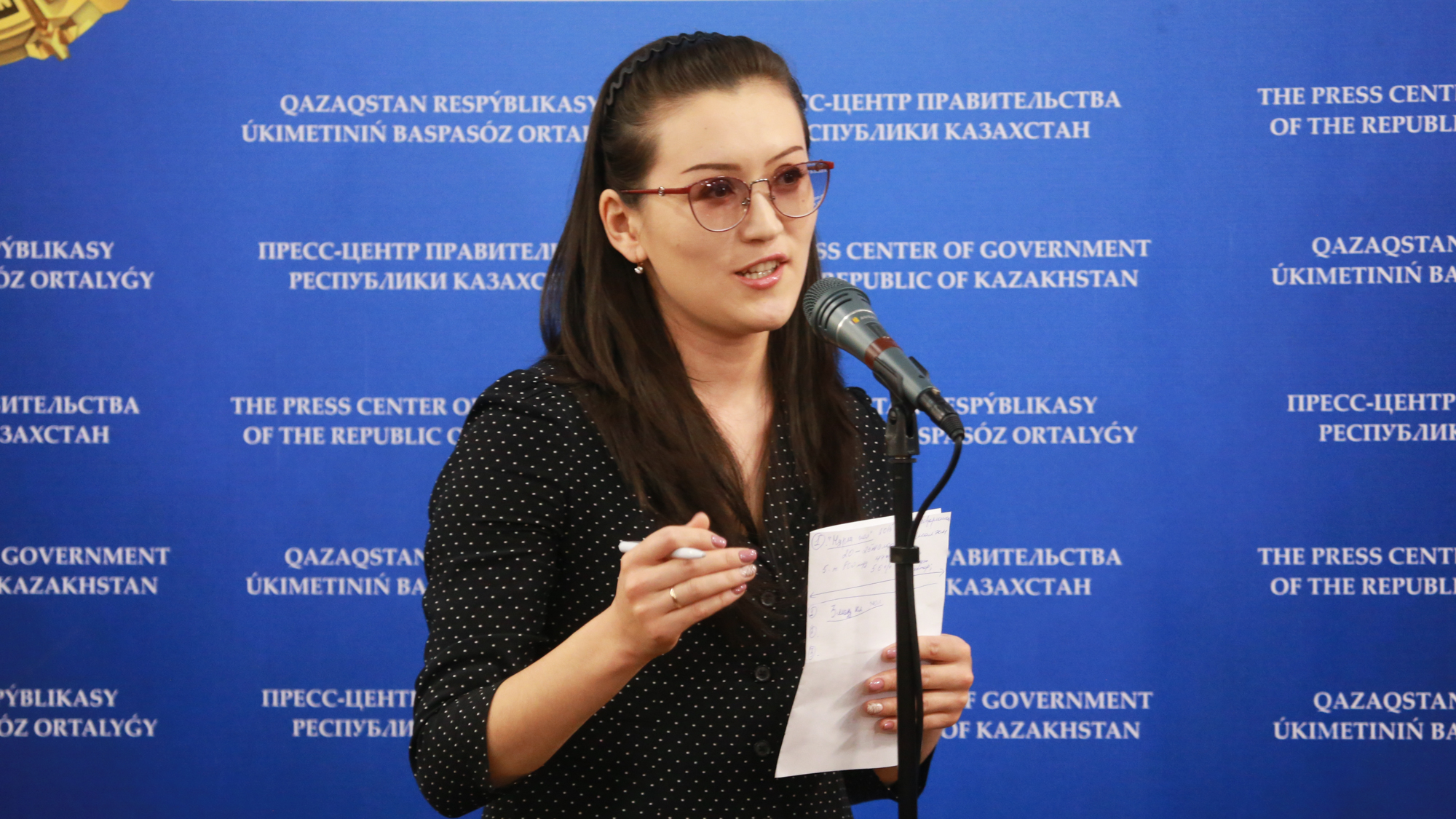
Answering the question of the journalist of the news agency regarding the development of the aviation industry as part of the Nurly Zhol state program, the vice minister of industry and infrastructure development noted that the aviation industry is one of the key sectors of the state.

During the implementation of the program, a new passenger terminal of the international airport was built in Nur-Sultan, six runways were reconstructed in Uralsk, Petropavlovsk, Almaty, Semey, Kostanay, Balkhash. The number of international air routes has reached 99, and the geography of flight has expanded significantly. New routes are opening, such as Hong Kong, Tokyo, Ulaanbaatar, Prague. Since 2012, 51 airlines have been operating in Kazakhstan.
“The main goal set by the department is to reduce the cost of air tickets, launch airports in all regions, open new international routes to Singapore, Shanghai, New York, and raise the level of Kazakhstan airlines,” said the vice minister.
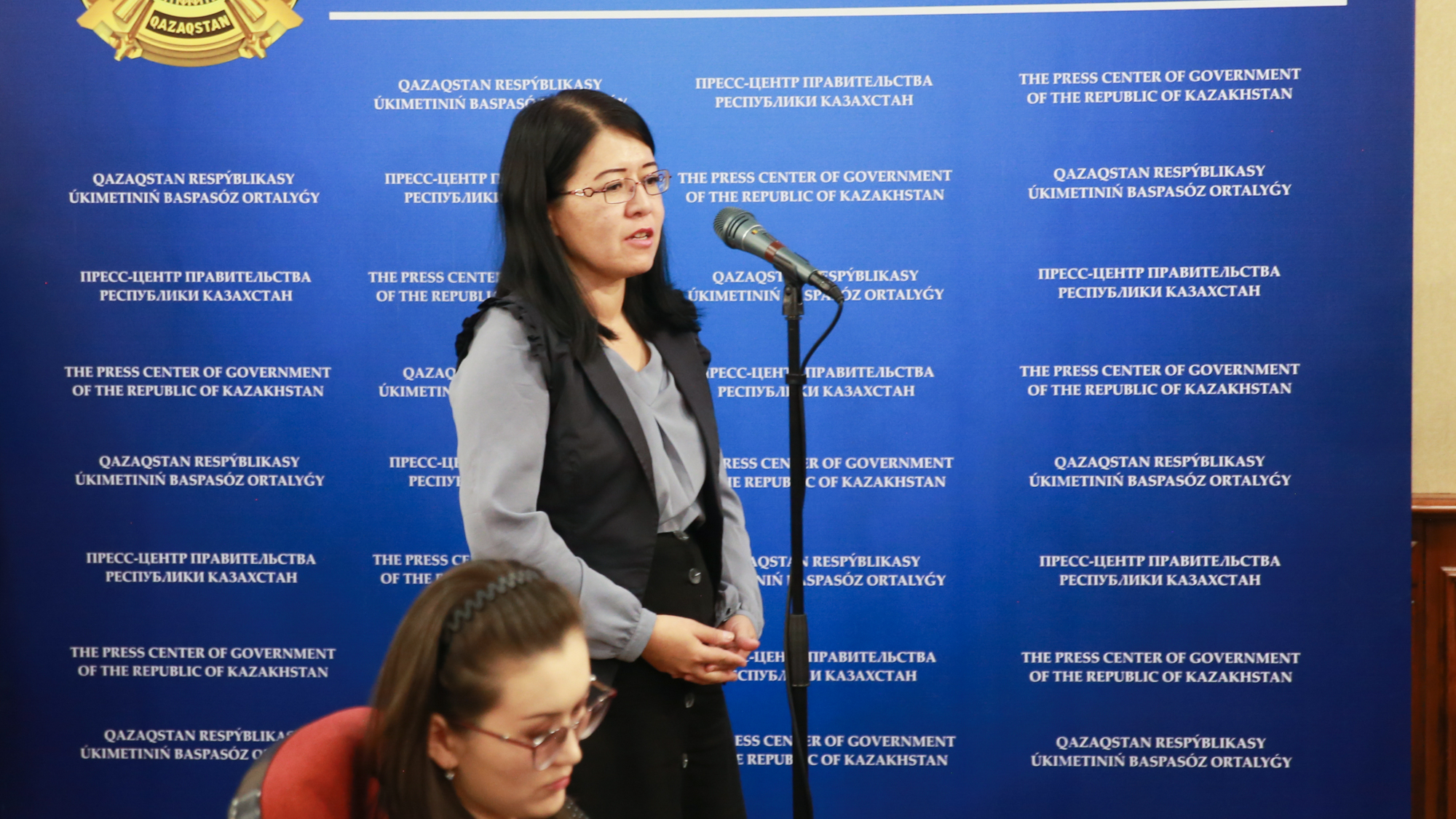
It should be noted that in the civil aviation sector, according to the results of the five-year plan, the number of passengers served at domestic airports increased to 16.2 million people, 8.1 million passengers were transported, which is 47% more than in 2014.
When asked about measures taken to upgrade the bus fleet and commission new passenger cars, Kamaliyev replied that depreciation of bus fleets has been reduced by 23% today.
“Today we have reduced depreciation of the park from 65% to 42%, we plan to reduce it to 30% by the end of 2025. This year 63 cars were purchased, and by the end of the year — another 43 cars. Every 5 years we acquire 100 wagons. We have a big contract with Transmashholding JSC, we want the localization of cars to take place in Kazakhstan,” said the Vice Minister.

As part of the second phase of the Nurly Zhol program, it is planned to allocate about 657 billion tenge of funds for the purchase of 600 passenger cars and about 144 domestic locomotives.
In turn, the Deputy Chairman of the Transport Committee of the Ministry of Industry and Infrastructure Development Kayriden Nurkenov, responding to a moderator's question on reducing depreciation of the bus fleet, said that as part of the development of motor vehicles, a Comprehensive Plan for updating the fleet of passenger buses was adopted.
“The implementation of the Nurly Zhol program has reduced the total depreciation from 65% to 42%. Today, about 12 thousand buses operate on regular routes and, accordingly, more than half of the buses have been in operation for more than 7 years. This program just provides for updating,” Nurkenov said.

According to him, over 2 years about 615 buses were purchased, of which 45 were purchased in 2018, 570 were purchased this year, which operate on regular passenger routes.
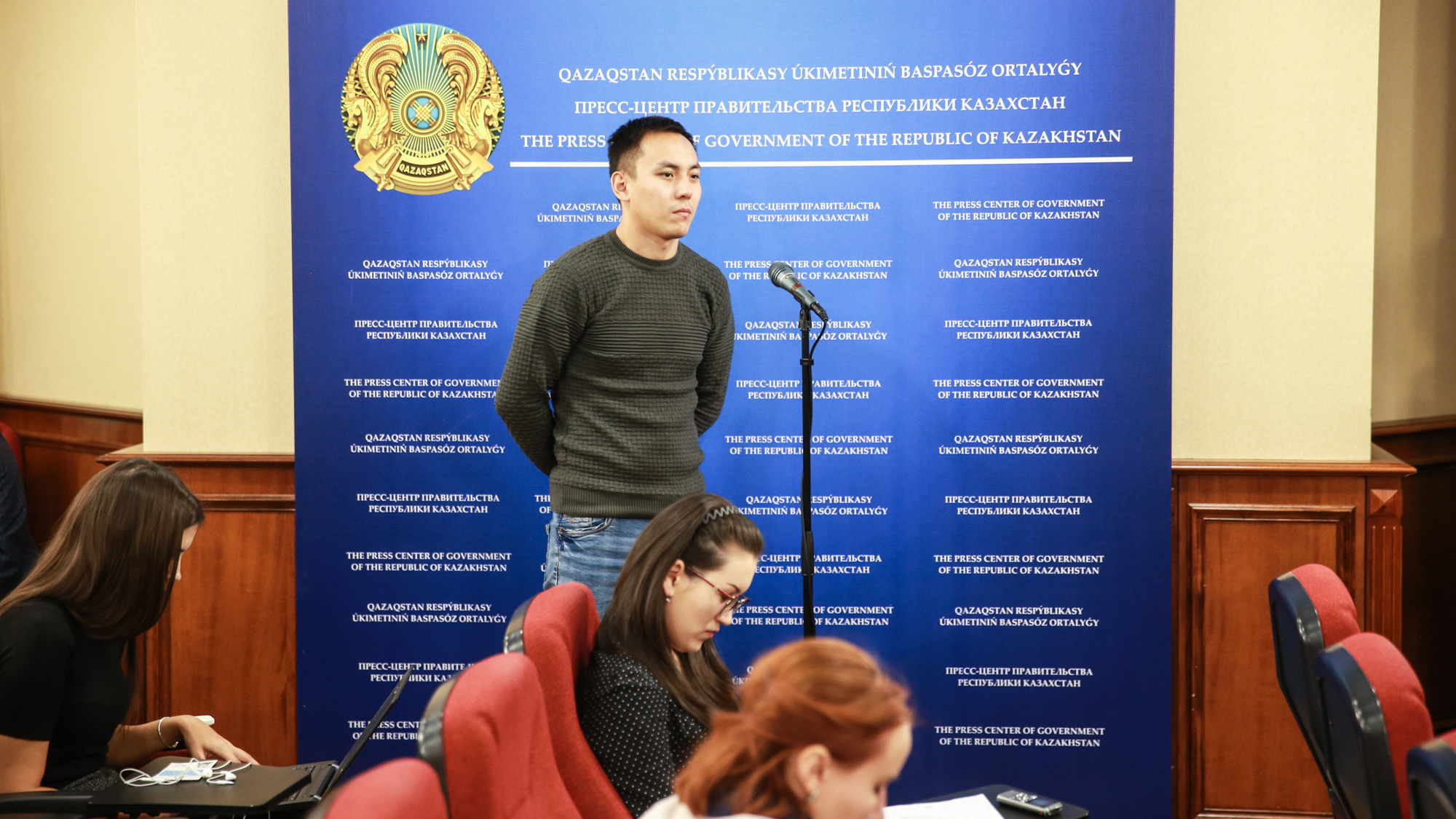
The correspondent of the republican television channel asked the vice minister regarding the connection of roads to tourist sites.
“Currently, the Taldykorgan – Ust-Kamenogorsk road, which leads to Alakol, is being built using Exim Bank loans. The road from the third category will go into the second. Directions will be open next year. Full completion is scheduled for 2021. Also, the reconstruction of the adjacent sections of Kalbatau - Maykapshagay, Taskasken - Bakhty is nearing completion,” Kamaliyev said.

On the sidelines of the Government, the Deputy Chairman of the Administrative Police Committee of the Ministry of Internal Affairs Alibek Kenesbaev spoke about toughening the liability of drivers with foreign numbers. In Kazakhstan, the import of cars from Russia, Kyrgyzstan, Armenia, Belarus increased. Since the beginning of the year, 923 accidents involving them were registered, in which 58 people died and 314 were injured.
“We will record violations and send fines to persons who drive cars with foreign accounting. As you know, we have a problem of operating a car with foreign accounting, due to the fact that we are members of the Customs Union, often our citizens take advantage of this moment. We, together with the General Prosecutor's Office, a credit bureau, and the National Bank, carried out work to identify car owners. According to the legislation, any vehicle that temporarily enters Kazakhstan is subject to compulsory insurance, there is a data bank on insurance policies that contains the owners of the car, those who drive vehicles and vehicle data: make and license plate. In this regard, since yesterday, we have implemented this integration, now those persons who drive vehicles in case of fixing traffic violations, the violations will be sent to their addresses,” Kenesbayev said.
According to him, since the beginning of the year, with the participation of car owners with foreign numbers, more than 60 thousand traffic violations were recorded, fines amounting to 814 million tenge were issued, of which 52 million remain recovered. The recovery rate is 6.5.
“There was such a problem that we could not timely identify the owners of these cars. This problem has now been resolved. The issue of introducing temporary registration of vehicles with foreign accounting is currently being considered. Under administrative law, we have a statute of limitations for initiating administrative cases. If two months have elapsed since the fixation, we will not initiate proceedings on such violations. If there are deadlines, then the instructions will be sent to the addresses of offenders,” said a representative of the Ministry of Internal Affairs.
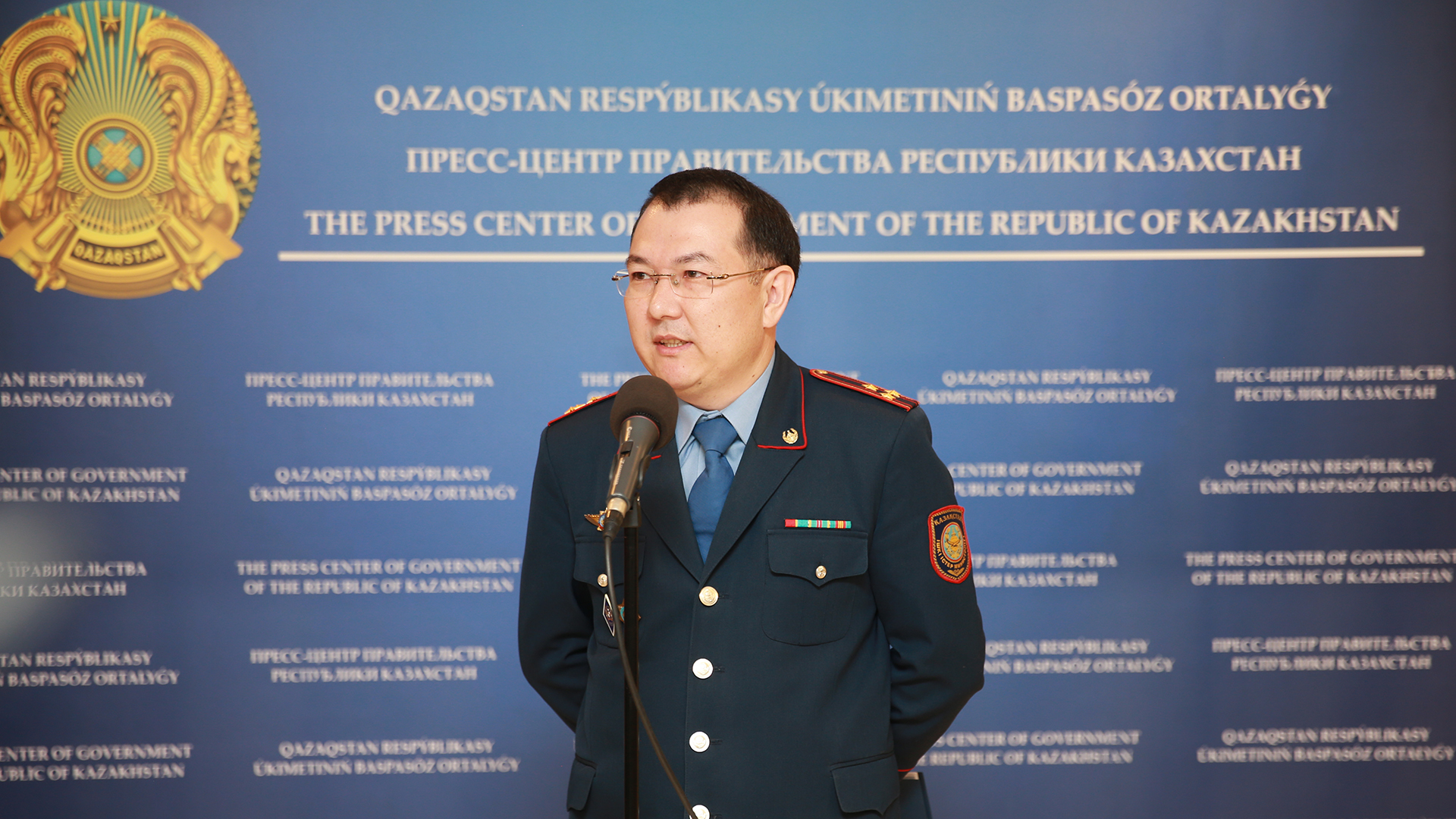
Kenesbayev also said that the issue of recognition of violations on the territory of the EAEU is also being studied. Now, a project is being developed jointly with the Russian Federation under an international agreement, within the framework of which all fines issued in the Republic of Kazakhstan will be recognized and executed on the territory of the Russian Federation, similarly, all fines issued on the territory of the Russian Federation with respect to citizens of Kazakhstan will be recognized and executed on the territory of Kazakhstan. There are also deadlines here: it will be possible to initiate administrative proceedings only within 2 months.

In addition, the representative of the Ministry of Internal Affairs informed that from Oct. 10 to 17, the country hosted the “Autobus” operational and preventive measure, in the course of which over 21 thousand violations committed by bus drivers were revealed during the week.
“There were glaring facts here when buses were driven by intoxicated people, 16 such facts were revealed on regular routes. 600 facts of illegal re-equipment of buses, which also affects road safety,” Kenesbaev said.
At the same time, journalists clarified the implementation of driver’s licenses and registration certificates for vehicles of a new type.
“We are now taking measures to enhance their protection, that is, we are introducing new-type chips with a large amount of memory. This is necessary to make more information available. We plan to add biometric data to the driver’s license in the chips. According to identity documents, we plan to enter biometric data from 2021, we plan to introduce the same parameters from the same period on driver's licenses and vehicle registration certificates,” Kenesbayev said.
Minister of Energy of the Republic of Kazakhstan Kanat Bozumbayev spoke about measures taken to limit the export of Kazakh gasoline. According to him, this year there are no grounds for changing the price of gasoline and diesel fuel.
“According to my information, the Ministry of Justice today registered a joint order with the Ministry of Energy, the National Security Committee, as well as with the Ministry of Finance on restricting the export of light oil products and other types of oil products from the Republic of Kazakhstan by road. Now, gasoline, diesel fuel and other types of oil products are forbidden to be transported by tankers outside the territory of the Republic of Kazakhstan,” Bozumbayev said.

Limitations, he said, will also affect transit buses. Trucks with refitted tanks will be held accountable.
“We are talking about the fact that many trucks and even transit buses are loaded up to 3 tons, installing new tanks to simply take them out. Therefore, there will also be restrictions,” said the minister.
For passenger cars, there will be no restrictions on refueling a gas tank. However, the number of canisters permitted for export will also be monitored.
“Private vehicles drive to a gas station — please, we are a civilized country. I poured one twenty-liter canister — also please, but no more. Not 20 cans each,” Bozumbayev concluded.
Stay updated about the events of the Prime Minister and the Government of Kazakhstan - subscribe to the official Telegram channel
Subscribe